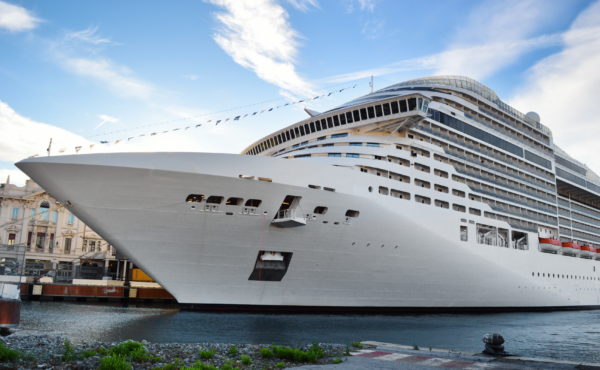Caribbean nations were engaged in a heated standoff with cruise companies who wanted to continue business as usual as the coronavirus pandemic spread across the planet.
An eye-opening piece by The Intercept detailed how cruise lines were pressuring Caribbean countries to let their boats dock even with potentially infected passengers aboard. The Carnival Corporation threatened to pull its business from Jamaica, the Cayman Islands, and Turks and Caicos after the island nations tried to prevent ships from docking at their ports or restrict who could disembark.

One of the ships, Costa Luminosa, brought the coronavirus to Puerto Rico and the Caymans. Eventually, the Cayman Islands had to shut down a hospital because employees were exposed to patients from the Costa Luminosa.
The Costa Luminosa also caused problems in Jamaica. Before the first confirmed case in Puerto Rico, Jamaican officials had refused to allow Italian tourists to disembark when the ship arrived. A few days previously, on Feb. 25, the country had refused the MSC Meraviglia after officials found out a member of the crew was quarantined due to flu-like symptoms. The Cayman Islands also refused the MSC Meraviglia.
After Jamaica put restrictions on the Costa Luminosa, Carnival and MSC rerouted all of their ships from the island to other locations, a financial hit for countries whose economies depend on tourism. Carnival steered ships away from Turks and Caicos after that nation refused the liner the Carnival Magic, and MSC rerouted ships from the Caymans. According to one expert, Carnival wasn’t used to being told no.
“What were Jamaica and the Cayman Islands doing? They were just trying to enforce their own health codes. Carnival didn’t like it,” attorney Jim Walker told The Intercept. Walker runs the Cruise Law News blog and typically represent people who sue cruise companies.
Similar behavior happened when the Bahamas and Dominican Republic turned away Fred Olsen Cruise Lines’ Braemar liner. The Dominican Republic refused the ship on Feb. 27, so it headed to St. Maarten and then Cartagena, Colombia. After the ship arrived in Cartagena, an American traveler tested positive for the virus. Four Braemar crew members and a passenger were later diagnosed while in Curaçao, another Caribbean island. The Bahamas and Barbados eventually turned the Braemar away.
After the trip was over, a Canadian Braemar passenger was also diagnosed after returning home. Cruise companies have been slow to suspend business during the coronavirus outbreak because they don’t want to take a financial hit. A Norwegian Cruise Line employee told the Miami New Times they were encouraged to lie to people in order to book new cruises. The employee provided receipts, which included a message that stated the coronavirus “can only survive in cold temperatures.”
“These discussions take place every day. And even during our department meetings, managers tell us that it isn’t a big deal, that more people die from other things,” the anonymous employee told the site. “[They’re] constantly underestimating it.”
NCL isn’t the only company downplaying the pandemic. On Thursday, Carnival told The Intercept they were implementing some new protocols but they plan to keep sailing.
“We have five departures scheduled for today and those sailings will depart this afternoon,” the rep told the outlet. The Cruise Lines International Association claimed most of their boats were “unaffected” by the outbreak before the organization did an about-face the next day and announced its members would suspend operations for at least a month.
On March 13, the Cruise Lines International Association announced a moratorium on cruises departing from United States ports. The CLIA is a trade organization that represents the majority of prominent cruise companies including Carnival, Royal Caribbean and MSC
“CLIA cruise line members are voluntarily and temporarily suspending operations from the U.S. as we work to address this public health crisis,” CLIA President and CEO Kelly Craighead said in a press release. “This is an unprecedented situation. Our industry has taken responsibility for protecting public health for more than 50 years, working under the guidance of the U.S. Centers for Disease Control and Prevention, and prides itself on its ability to deliver exceptional vacation experiences for guests, as well as meaningful employment opportunities for crew. This has been a challenging time, but we hope that this decision will enable us to focus on the future and a return to normal as soon as possible.”


